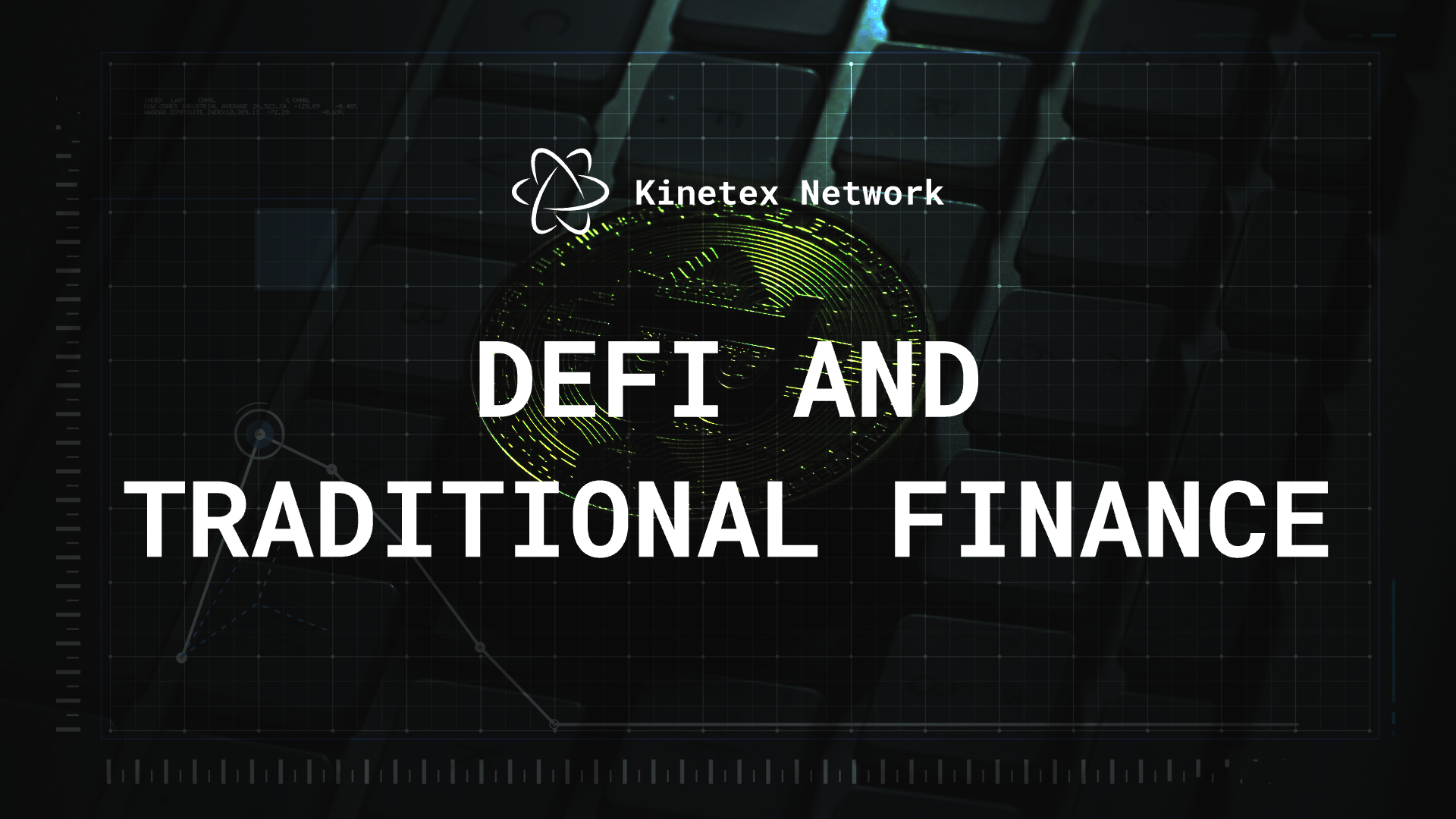Disclaimer: The views, suggestions, and opinions expressed here are the sole responsibility of the experts. No Pacific Daily journalist was involved in the writing and production of this article.
Decentralized and Traditional Finance: Bridging the Gap for Mainstream Adoption
Dubai, UAE, 9th August 2024, The rise of Decentralized Finance (DeFi) has marked a pivotal moment in the evolution of not just the crypto industry but the financial sector as a whole. DeFi’s capacity to deliver financial services to individuals worldwide while eliminating intermediaries and presenting new opportunities to users globally has been significant. Meanwhile, Traditional Finance (TradFi) continues to maintain its dominance while also showing interest in exploring DeFi’s capabilities. Let’s explore how these two industries continue to bond with each other, opening a path for mainstream crypto adoption.

TradFi vs. DeFi
TradFi is a term used to describe traditional financial institutions and systems, like banks, stock exchanges, insurance companies, and other regulated entities. These institutions and systems rely on centralized intermediaries, regulatory oversight, and well-developed infrastructures to provide various financial services. Conversely, DeFi comprises a variety of financial services built on blockchain technology. By using smart contracts, DeFi platforms enable the execution of transactions without relying on conventional intermediaries such as banks or brokers.
Notable characteristics of DeFi encompass transparency, as all transactions are recorded on the blockchain and accessible to all, worldwide accessibility with an internet connection, and unrestricted participation, allowing individuals to engage in DeFi activities without needing authorization from centralized entities. The latter attracts many users who have a hard time believing authorities or banks for one reason or another. DeFi products and services return users to the level of control they probably did not experience before, empowering them to take their financial well-being into their own hands.
Although DeFi offers numerous benefits, recognizing its downsides is as crucial. These include substantial volatility, vulnerabilities in smart contracts, and uncertainties in regulation. Those involved in the DeFi sector must remain mindful of and ready to confront these risks as they access associated services.
The Main Obstacles to Connecting Two Industries
Several obstacles prevent DeFi from successfully connecting with TradFi and crypto from achieving widespread acceptance, at least for now. First and foremost, the unregulated status of crypto and the regulated status of traditional financial services are a tricky match. One solution is to explore some security measures, including KYC and AML, which can enhance transparency and accountability within the DeFi space and facilitate integration with traditional financial systems.
Another obstacle is a lack of interoperability. Interoperability plays a crucial role in the world of DeFi as there are various blockchain networks, each with its own standards and protocols. By enabling seamless connections between various blockchain ecosystems, we may simplify the path to creating a seamless connection between DeFi and TradFi, too. As a result, there may arise a vast potential for the creation of hybrid financial products that combine the strengths of both systems in the long run.
The third substantial obstacle is user experience. As is evident for many novice crypto users, the majority of DeFi platforms can be challenging to navigate without experience, especially when compared to the user-friendly and familiar nature of traditional financial services. Therefore, making DeFi more understandable and intuitive to a broader audience is critical. Otherwise, even given the strong support from the TradFi platforms, DeFi will not be able to retain users coming its way. This can be achieved by introducing easy-to-use interfaces, offering comprehensive tutorials, and providing adequate customer support services.
Conclusion
Seeing the way the crypto industry develops and the attention financial institutions and authorities start to pay to it, the anticipation of some form of merger between the two sectors is high. By melding the finest attributes from both DeFi and TradFi, this fusion has the potential to generate inventive financial products that will benefit a more significant number of people worldwide, presenting a new epoch in finance.
Kinetex Network: Website | Kinetex dApp | Blog
Related News
Gas Station Boner Labs Launches BonerBot.Tech on Solana
Spread the love Keep Your Volume Up. Get Hard. Stay Hard. Gas Station Boner PillRead More
Fixgy.com Emerges as One of the Most Trusted Exchanges Offering a Secure Platform to Global Traders
Spread the love Fixgy.com has become a preferred choice by global cryptocurrency traders by offeringRead More